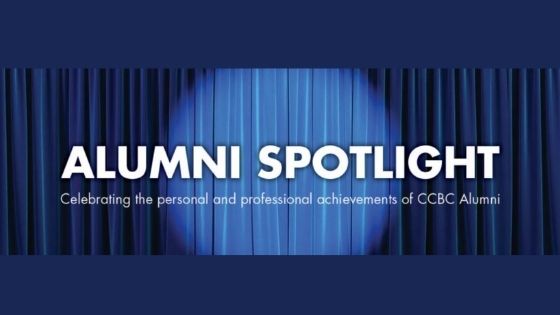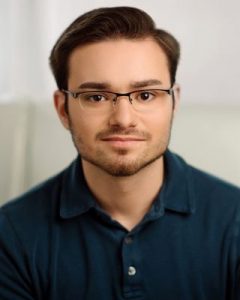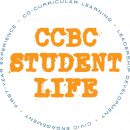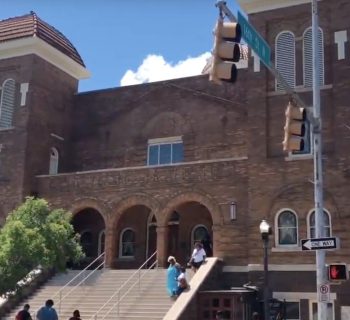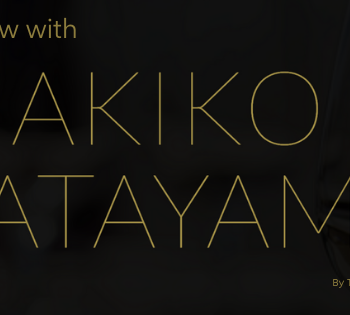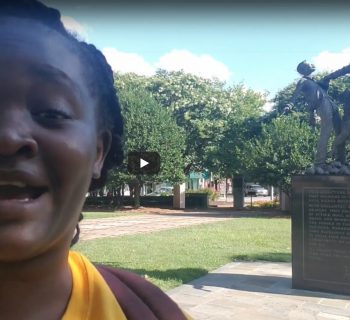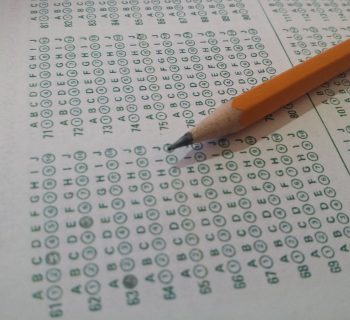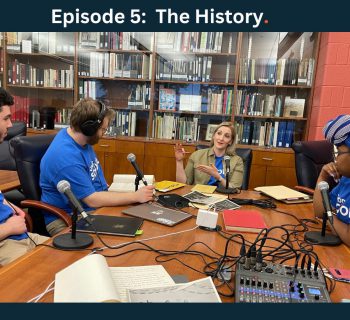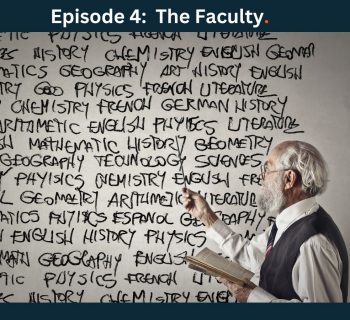Jason Wilkinson
Michael Stavros loves films. When he’s not watching them, he’s reading about them or talking about them with friends. Like a lot of therapists, he’s also fascinated with psychoanalysts Sigmund Freud and Carl Jung, but his journey started with the movies.
“I probably got into it first from my interest in movies and storytelling,” said Stavros. “I was reading about like, Joseph Campbell’s 'Hero with a Thousand Faces' and a lot of that is based on Jungian archetypes and then it just segues into ‘Who is Carl Jung?’ I found it interesting both because of my hobby of being into movies and developing characters, and just kind of trying to construct what makes this person tick and what is consistent with their motives and actions within the course of the story–and I like talking to people.”
Stavros is a CCBC alumni who graduated in 2014 with an Associate’s Degree in General Studies. From there, he transferred to University of Maryland - College Park where he obtained his Bachelor’s Degree in Psychology in 2016 before obtaining his Master’s Degree in Clinical Psychology from Loyola UMD in 2019. Stavros is a perfect example of a CCBC student who completed their degree and now has a successful career in their chosen field.
“Micheal has always been caring and good natured,” said Justin Wilkinson, a friend of Stavros’ for over a decade. “He’s definitely the type of friend you can share your problems with.”
Stavros started attending CCBC while still in high school as a part of the Parallel Enrollment Program. “I was part of the pilot program. They recruited me off the strength of my PSAT scores,” said Stavros. “For a good bit of my time there, I preferred the actual classes there to my high school.”
When asked how CCBC prepared him for attending a four-year university, he replied with something that affects many freshmen in their first semester–the workload. “In high school you have a new thing to do every single day and in college you may have a 15-week course and only six or seven actual grades,” said Stavros. “But they’re substantial and they all take up your time and you're gonna have to pace yourself through that because it may be a course that you only go to two or three times a week.”
More than just a change in workload, however, he also sees community college as a time to really figure yourself out. “For a lot of people entering college, a lot don’t know what they want to do,” he said. “So for that first year or so, you might just be taking things essentially just to try it out. At a community college, you could just spend those two years, get your general studies in, check out some electives, see what kind of works for you and also get those credits transferred to a four-year institution all at a discount.”
Stavros has been a licensed therapist since 2020 and has been practicing since 2021. Before getting licensed, he was a smoking cessation counselor at Sheppard Pratt. “It got me used to having to meet a lot of people. It was essentially all mini-intake sessions,” he said.
This played an essential part in developing his own style for therapy sessions, which he describes as pretty eclectic. “It’s always grounded in person-centered therapy,” he said. He is a believer in Carl Rogers’ theory of unconditional positive regard. “...they are the expert on their own experience, and you are there to facilitate them in their own discoveries.”
Carl Rogers described unconditional positive regard as “…caring for the client, but not in a possessive way or in such a way as simply to satisfy the therapist’s own needs… It means caring for the client as a separate person, with permission to have his own feelings, his own experiences.”
According to Structural Learning, Rogers based his theory on his experience working with children. This works well for Stavros, as about half of his clients are children. “Generally, I’ve worked with clients ages 8 and up… I would say that the specialty I’m finding myself in is LGBTQ+ affirming care with teens and adolescents,” he said.
Stavros, whose grandmother is gay, had a feeling that this was the specialty he would find himself in. He has found that his youth is a strength when working with younger clients, who can take a bit longer to warm up and oftentimes like to play games during the sessions. “I did not expect to be playing Connect Four as often as I do… I did expect to be dominating at Connect Four as much as I do,” he said, laughing.
“Adults are usually way more straightforward,” he said. “They’re coming there on their own accord, and they can be way more goal-oriented right away.”
Regardless of age, his ultimate end goal with his clients is the same–that he can eventually discharge them. “I think ideally it should be a situation where it’s like, I wouldn’t want them to be dependent on me forever,” he said. “...the whole idea is that I am there to guide them to be better versions of themselves and then they can take care of themselves from there and I become a voice in their head essentially.”
“It’s not a movie where they’re like ‘I learned the lesson and I’ll never have to learn that again!’ It’s more like ‘I learned the lesson and now I’ll be able to recognize it better when it happens again.’”
He had some advice for students–”Recognize as soon as you can what your professor is looking for and how they are looking to help you… find out what the standard is and look to rise to that occasion because you’re always going to meet people in life who are expecting different things out of you and the more flexible you can be with that, the generally better you’ll be able to just deal with your environment.”


